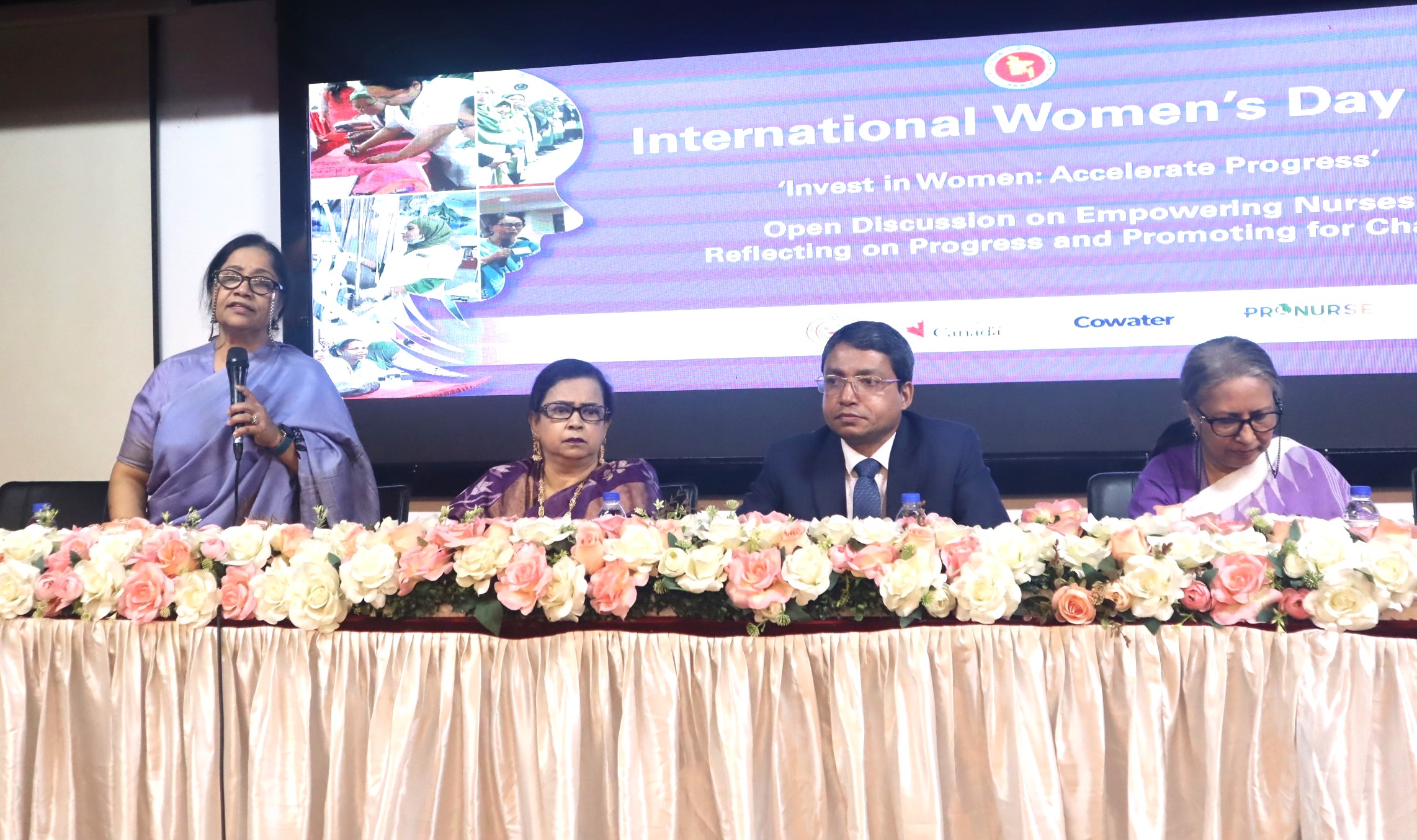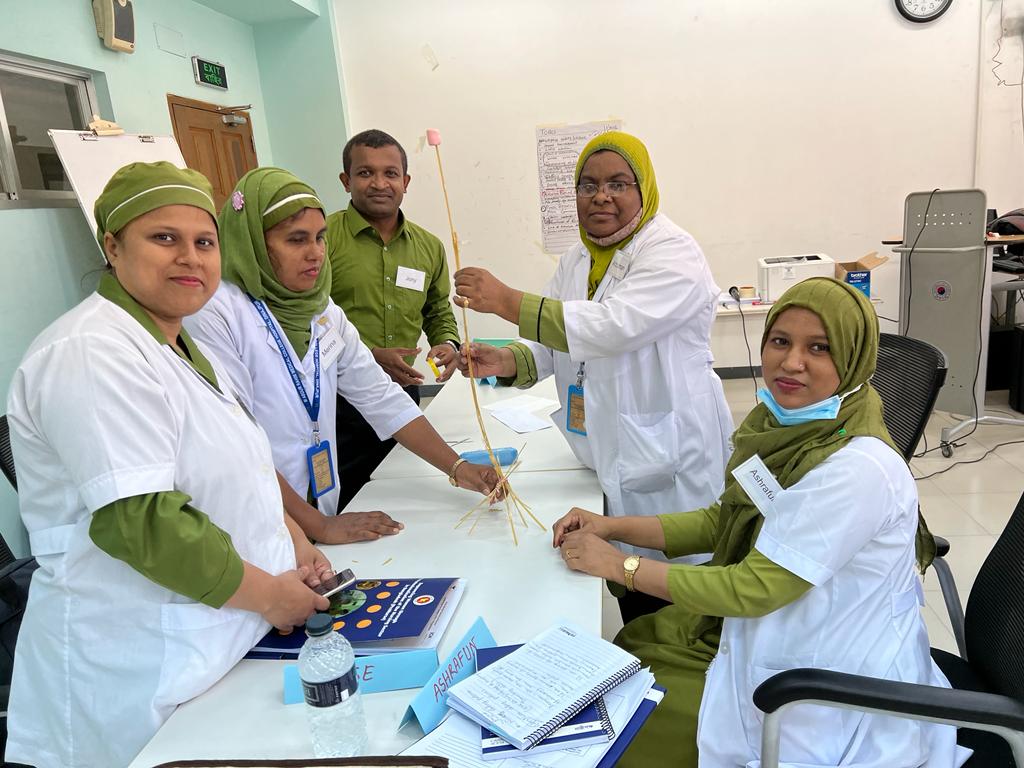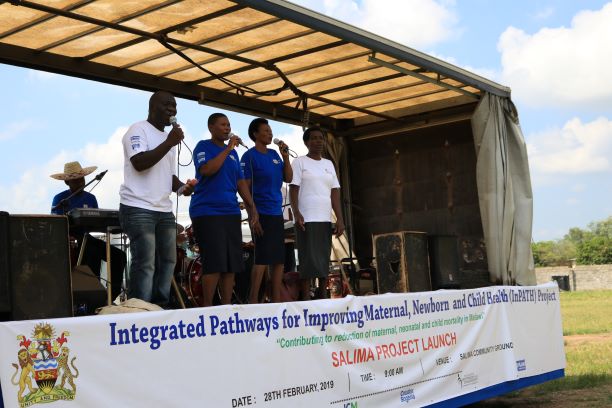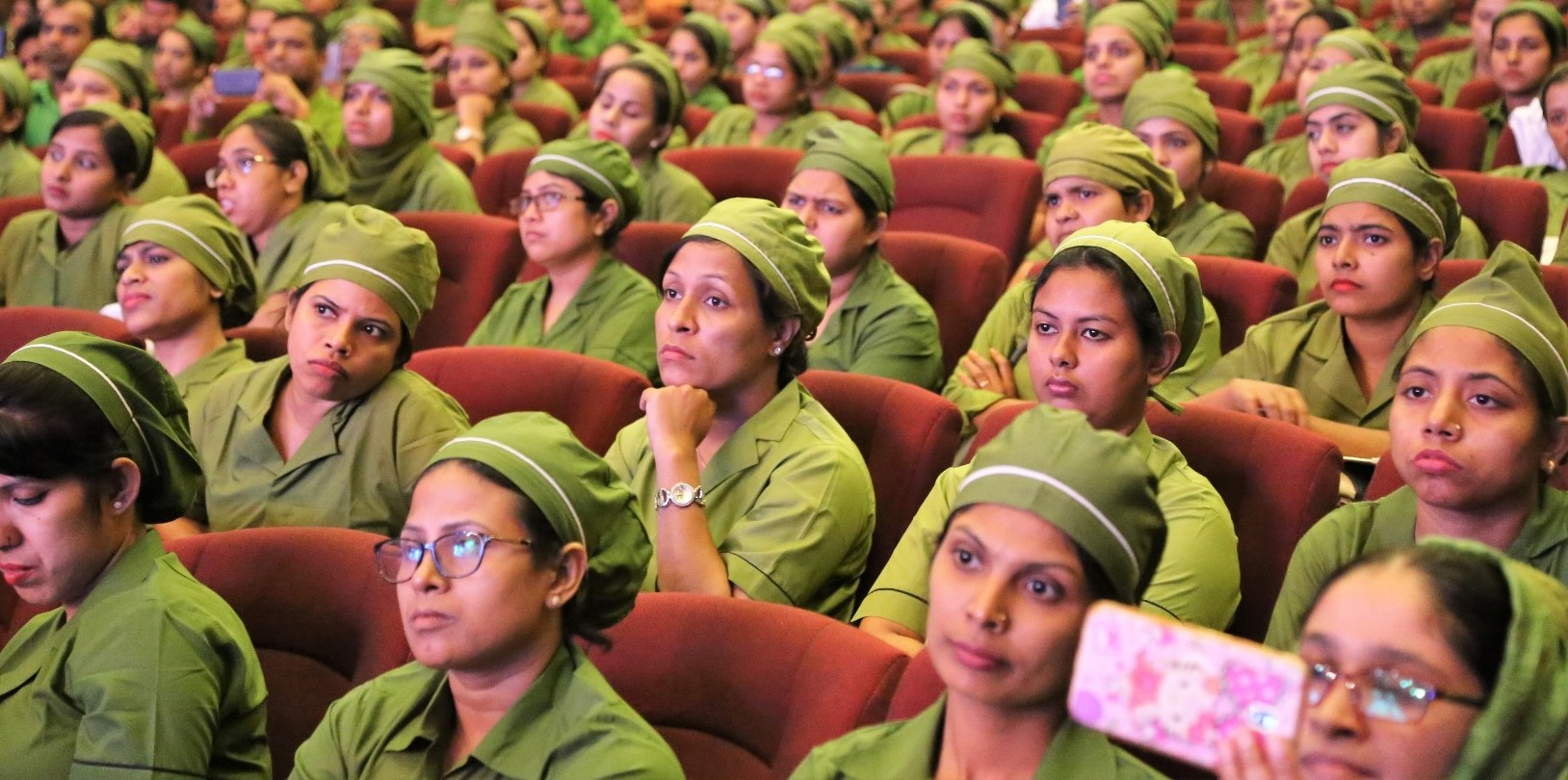
Health systems strengthening through the empowerment of nurses
Nurses play multiple roles across public and private health care systems, community-based organizations and academia, making them uniquely qualified to deliver a wide range of essential health care and related services. This includes patient care, education, outreach, advocacy, and working with patients, families, and communities to equip them with the information and tools needed to play an active role in the health decisions that affect their lives.
The impact of a strong nursing sector on a range of human development outcomes has been the focus of a growing body of research. Notably, the 2016 Triple Impact on Nursing Report demonstrates links between investments in nursing and improved health, gender equality and economic growth outcomes for countries. Yet, according to the same report, nurses worldwide are typically under-valued and their contributions underestimated, which has often been to the detriment of health systems and with profound negative implications for patient care.
In Bangladesh, the nursing profession has historically suffered from chronic public underinvestment. The public perception of nursing as ‘women’s work’ and the resulting economic undervaluing of such work due to gender-discriminatory social attitudes and norms is a powerful determinant in shaping the level of resources invested in the sector. The resulting low quality of public sector nursing services further reinforces the poor public image of nurses and the lack of professional and social status awarded to them. Caught in this vicious cycle, Bangladeshi nurses have been unable to channel their unique position within communities to act as powerful agents of change in health care. Instead, a sector characterized by limited resources and weak institutional capacity have left nurses demoralized and ill equipped to meet demands of an ever-changing health care system.[1]
Breaking the cycle
In response to this critical gap, the Government of Canada worked hand in hand with the Government of Bangladesh to fundamentally transform the nursing profession and elevate the role that nurses play within the country’s health care sector. A critical piece of this collaborative effort, was the Human Resources for Health (HRH) Project in Bangladesh, a CAD 20M project, funded by the Canadian Government, and implemented between 2012 and 2019 by Cowater, in partnership with McMaster University School of Nursing, the Canadian Association of Schools of Nursing (CASN), and Plan Canada International. The HRH project sought to strengthen the quality of nurse midwifery education and services, empower nurses, and promote gender equality within the health sector in Bangladesh. The HRH project worked at both the systems and individual level, to build capacity and ultimately help foster an environment that amplifies the voices of nurses; recognizes and harnesses their contributions; and cultivates their leadership in health practice and policy.
Investing in education and training
In Bangladesh, the number of qualified nurse teachers is well below international standards. In the absence of an established system of continued learning and professional development, poorly trained senior nurse managers and teachers are not equipped to train and / or manage nurses. In addition, there exists a widely recognized disjunction between nursing education and clinical practice.
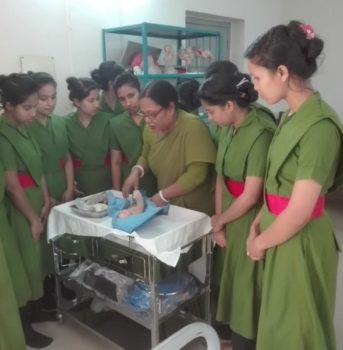 The HRH project worked with the Directorate of General Nursing and Midwifery (DGNM) to conduct a comprehensive assessment of the training needs of nurses and helped develop appropriate plans, guidelines and materials to update nurse training and education services. Crucially, the project supported the development of comprehensive training manuals and helped train approximately 3,000 senior nurse managers and teachers to build leadership and management capacity. These nurse managers and teachers were also provided with training in pedagogy / teaching methods, midwifery, clinical supervision and information technology. The project established entry-to-practice competency guidelines for nurses; accreditation systems for nursing institutions; guidelines and tools for managing a national registration, licensing, and examination system; and pioneered the implementation of a “Communities-of-Practice” to promote knowledge exchange between education and service nurses. Among other things, these initiatives served to close the gap between education and clinical practice.
The HRH project worked with the Directorate of General Nursing and Midwifery (DGNM) to conduct a comprehensive assessment of the training needs of nurses and helped develop appropriate plans, guidelines and materials to update nurse training and education services. Crucially, the project supported the development of comprehensive training manuals and helped train approximately 3,000 senior nurse managers and teachers to build leadership and management capacity. These nurse managers and teachers were also provided with training in pedagogy / teaching methods, midwifery, clinical supervision and information technology. The project established entry-to-practice competency guidelines for nurses; accreditation systems for nursing institutions; guidelines and tools for managing a national registration, licensing, and examination system; and pioneered the implementation of a “Communities-of-Practice” to promote knowledge exchange between education and service nurses. Among other things, these initiatives served to close the gap between education and clinical practice.
In addition to not having access to quality education, training and professional development opportunities, teachers in nursing institutes in Bangladesh overwhelmingly report inadequate and failing infrastructure as a key barrier to effective teaching. The 2018 National Task Force for Future of Nursing Report notes that enrollment within these institutes continue to increase without the necessary physical expansion of facilities. Almost all nurse training institutes enroll 3 – 4 times more students than their physical capacity allows.
To address this, the HRH project led a major refurbishment of 15 selected nursing institutes across Bangladesh, which included structural upgrades and expansion of classrooms, libraries, clinical practice laboratories, as well as students’ accommodation. Books and other teaching materials were procured and distributed to the libraries and laboratories of all 43 nursing institutes in the country. Five out of 15 nursing institutes that were refurbished under the project became national Centers of Excellence for nursing education and training.
The investments made in these nursing institutes were remarkable; they helped transform the organizational culture to one that values and promotes needs-based and gender-responsive education of both teachers and students. It also helped institutes better leverage the diverse strengths, expertise and overall passion of nurse teachers and students to enhance nursing services. Inspired by this success, Bangladesh’s Ministry of Health and Family Welfare (MOHFW) has followed suit and is scaling up changes made in selected institutes to all nursing institutes and colleges in the country.
Investing in career progression and continued development
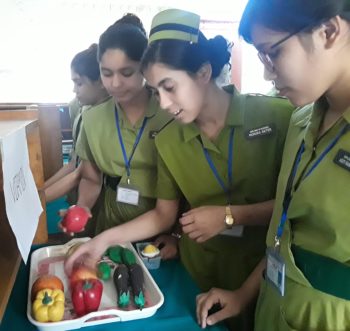 In Bangladesh, the absence of a clear career path for public nurses has been a persistent issue. It led to a major bottleneck within the nursing profession and to the stagnation of nurses’ careers, whether in hospitals, educational institutions or in administration. Nurses would often work without a single change in their respective designations for more than 25 years.
In Bangladesh, the absence of a clear career path for public nurses has been a persistent issue. It led to a major bottleneck within the nursing profession and to the stagnation of nurses’ careers, whether in hospitals, educational institutions or in administration. Nurses would often work without a single change in their respective designations for more than 25 years.
As the DGNM is a key entity within the MOHFW for regulating and providing oversight of the nursing sector, Cowater, in collaboration with the McMaster University School of Nursing, advocated for the directorate to be raised at a higher administrative level within the MOHFW. It was strategically important to empower the DGNM with not only the resources but also the administrative authority to effect changes in the sector.
This included working with the DGNM to redesign and propose an optimal organizational structure, review and adapt job descriptions and roles within the directorate, and modernize recruitment practices within the nursing sector. As a result of this work, the DGNM was formally recognized by the Prime Minister and the MOHFW as the central body responsible for managing the overall administration of over 30,000 public sector nurses and was raised to the same level as other directorates within the MOHFW. This was a major step towards elevating nurses’ professional and social status in the country.
To support the management and operational capacity of the nascent directorate, the HRH project developed and put in place key decision-making tools such as a web-based Personnel Management Information System (PMIS), an electronic registration database for all nurses and a web-based electronic system for managing nursing education. These user-friendly, web-based systems replaced older manual ones and resulted in more a efficient management of nursing services and education. With technology beginning to play an important role in the availability of
personnel records, the timely PMIS reports are now being used as key decision-making tools for the DGNM. The computer-generated reports help identify qualified nurses throughout the public sector contributing to transparent decisions for the placement of nurses in their respective positions. In addition, the PMIS tool is being used by the Human Resource Unit of the MOHFW to support the recruitment of nurses.
Addressing gender-based violence and sexual harassment in the workplace
A needs assessment conducted by the DGNM found that nearly 90% of public sector nurses are unaware of inappropriate behaviors in the workplace and silently put up with it. The lack of proper reporting systems, information and training available to nurses about their rights, and the fear of stigma and backlash all featured prominently as key contributors to this situation. In response, Cowater assisted MOHFW to develop two key policies for the nursing sector, namely the Prevention and protection from workplace violence and sexual harassment for nurses and Workplace safety and health for nurses policies. These guidelines outline inappropriate and unacceptable behaviors in the workplace; establish reporting processes; and detail the rights, responsibilities and obligations of all involved. Nurses received training on these policies, which are now being applied across the public sector nursing practice. These interventions signaled the sector’s commitment to addressing sexual harassment and violence in the workplace.
***
Over the past six years, the Cowater-led HRH project has significantly contributed to the positive transformation of the nursing profession in Bangladesh. Nurses who have been involved in the project are increasingly well-placed to lead change in the health care sector, empower other nurses to provide high-quality care, and ensure gender considerations are integrated across health care. However, much remains to be done. The persisting gaps in institutional, technical, and management capacity required to meaningfully support nurses’ access to quality education, training, and professional development, combined with persisting harmful, gendered social norms, means that the enabling spaces required for nurses to assume leadership positions and contribute fully to addressing the today’s global health issues are limited.
Canada’s Feminist International Assistance Policy states that the most effective way to reduce poverty and build a more inclusive, peaceful and prosperous world is to advance gender equality and the empowerment of women and girls. By continuing to invest in the education and empowerment of nurses in Bangladesh, and in particular, women, we invest in the health of communities, and those most vulnerable.
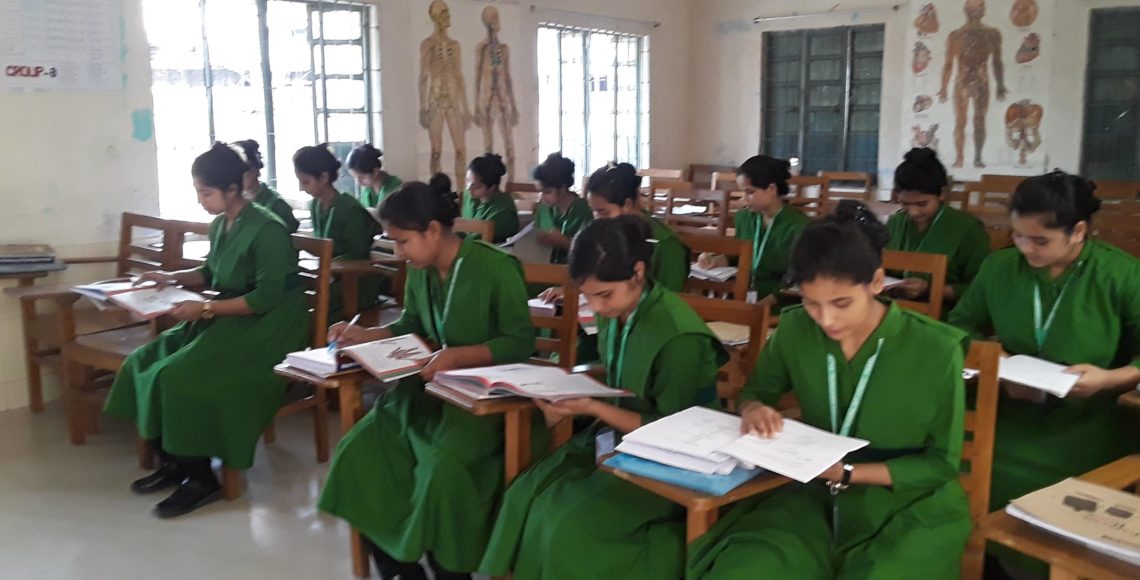
_____
1 Nursing education in Bangladesh: a social business model: International Nursing Review, Volume 63, Issue 2, June 2016 Barbara Parfitt RM, RN, FNP, PhD, MCommH, MSc, CBE and Niru Shamsun Nahar RN, RM, MSc, BSc, DipAN
Related Content
ProNurse Project celebrates International Women’s Day 2024
This year’s International Women’s Day theme was “Invest in Women: Accelerate Progress”. To celebrate and raise awareness of the role of women in the nursing sector of Bangladesh, ProNurse Project […]
Raising the next generation of nurse leaders in Bangladesh
Bangladesh has one of the lowest rates of nurses and midwives in the world. According to the World Bank, in 2019, there were only 0.4 nurses per 1000 people, a […]




